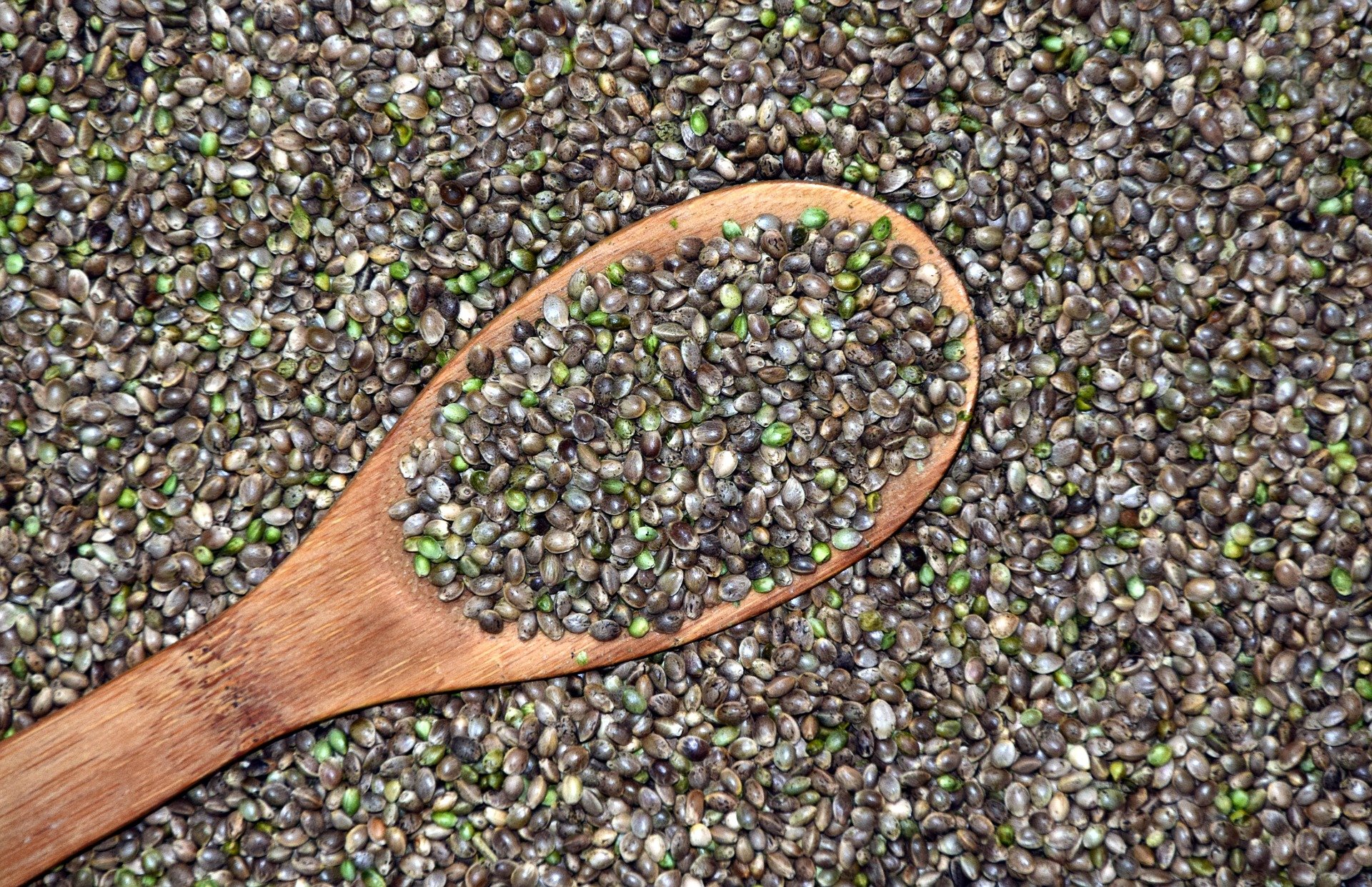Enter the hemp seed.
This increasingly popular product originates from the same plant that CBD does and like CBD contains no physiologically meaningful amount of the psychoactive compound THC.
It’s very likely you’ve seen or at least heard of hemp seeds before as there availability and widespread use and promotion continues to accelerate.
By the time we’re done here you will have a much better idea of what hemp seeds are and the very unique health benefits they have to offer.
Hemp Seeds Vs Hemp Hearts
As mentioned, hemp seeds are the seeds of the variety of Cannabis sativa L. plant that has very low THC concentrations (<0.3%) and therefore no psychoactive properties1 .
If you’ve ever looked into these products before, you’ve probably noticed that you can purchase both hemp seeds and hemp “hearts”.
Hemp hearts are essentially the de-shelled or “hulled” version of the seeds.
While being otherwise nutritionally similar, they contain significantly less fibre but are much easier to consume and more suitable for certain recipes because they aren’t as hard or crunchy as the seeds themselves.
The Nutritional Value Of Hemp
The consumption of plant seeds is strongly associated with improved cardiovascular and metabolic health which is largely owing to the plant protein, healthy fats, and wide variety of vitamin, mineral and antioxidant compounds like polyphenols that they contain.2
Like other varieties of seeds, hemp also brings to the table nutritionally meaningful amounts of magnesium and potassium, two nutrients which have the potential to be under consumed in our population3.
The blood pressure lowering DASH diet relies heavily on sufficient intakes of magnesium and potassium, which explains why the Trials journal has a protocol in place to assess the potential blood pressure lowering effects of hempseed.
When we take a closer look at the specific nutritional profile of these products there are a certainly some other key things that stand out.
One of the things that really jump off the page is the significant amount (8- 10 grams) of protein per serving of both hemp seeds and hemp hearts.
This makes them strong candidates as a plant-based protein source, and their protein quality and digestibility is considered comparable with most other nuts, seeds and pulses4.
As far as the difference in fibre content is concerned, this can be viewed strategically.
While there are many of us that need and would benefit from the high fibre content of hemp seeds, not everyone can tolerate intact seeds from the digestive perspective, which means that hemp hearts represent a perfectly strong alternative.
The one thing that both hemp hearts and seeds contain that is not abundantly clear from their nutrition label is a very significant amount of the anti-inflammatory omega-3 fatty acid.
The Omega-3 Content Of Hemp
Omega-3’s are so intriguing because they can be elusive from the dietary perspective, especially for vegans/vegetarians who may not include fish in their eating pattern.
Gram per gram, hemp is second only to flaxseed when it comes to its omega-3 content and surpasses both walnuts and chia seeds in this regard.
It also has more protein per serving than any of these foods.
When I look at hemp hearts and seeds, I can’t help but see a strong alternative for those who may not enjoy other varieties of omega-3 rich nuts/seeds and a very unique food which is especially valuable for vegans and vegetarians.
Especially considering the high iron content, which is also so important for this demographic.



